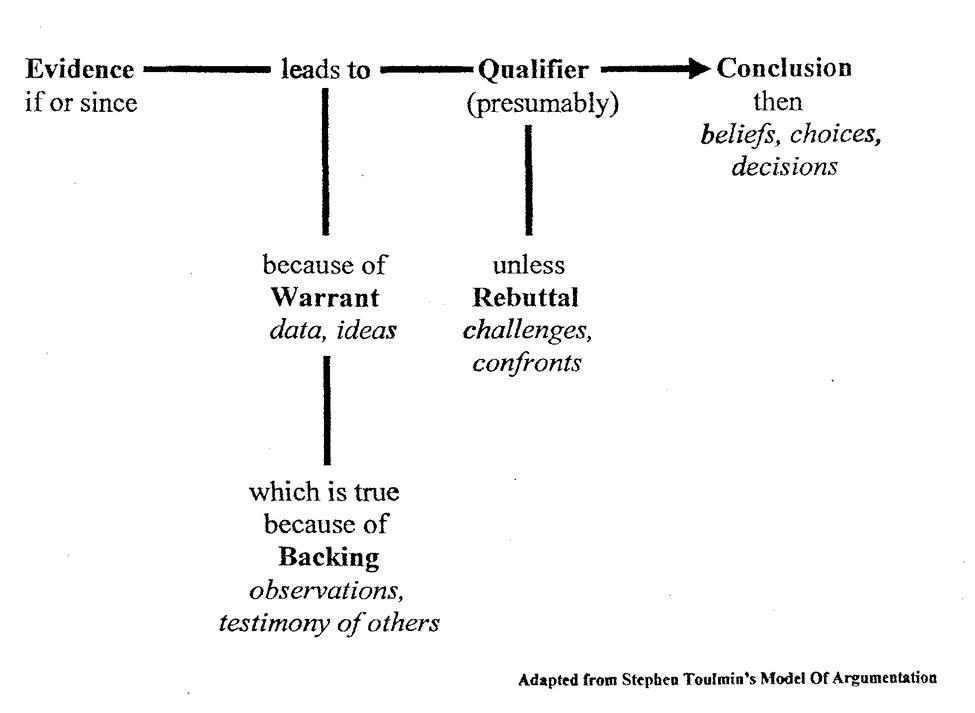It’s OK to argue. It is certain that truth and integrity are important for interaction since everyone has stories with both accuracy and error that need to be discovered and worked through because they effect relationships for benefit or harm. In a courtroom the judge is an umpire to assure that the legal narrative is a controlled, orderly strategy for getting as close to the truth as possible, and to assure that everyone listens to each other. This is a collaborative event with honest interaction between all involved with the claims of the case. In another example, a company that produces and sells gadgets that are no longer flying off the shelf needs a serious correction. The boss calls production and sales staff to a meeting to discover the truth of why this is happening and what can be done about it. Production and sales are each going to assert a story about who is causing the train wreck that may be accurate or in error. Like a courtroom sometimes gets, judgment may be hot and fussy. The boss controls the thermostat, so heat is regulated. Illumination will come through honest argument that will eventually lead to a decisive outcome.
Here is a brief account of the sequence of truth-seeking arguments for improved gadget production and sales to illustrate this process.
(1) Discovery requires the sharing of all related information. They must listen to each other. Each side (both production and sales) present verifiable claims of evidence with data and ideas (warrants), from observation and testimony (backing), and is also allowed to challenge the other side (rebuttal). (See chart below). For example, sales personnel give testimony from customers that the gadgets being produced are inferior, and they don’t want to buy them. Production staff counter claim a rebuttal that sales staff aren’t calling on customers enough to find if this is accurate or not. Heat may be most volatile during this part of the process. If consensus arises from evidence leading to a warranted conclusion, it is because data and ideas are backed by careful observation and testimony.
(2) Then a narrative is selected with integrity because the evidence for one choice is greater than the evidence for another choice.
(3) If the cooperative decision is to improve gadgets and the result is an increase in sales, then this chosen solution will probably be satisfactorily verified. However, if purchase of the gadgets continues to slump then production’s claim of poor sales staff performance may be a successful rebuttal to the sales staff argument of customer dissatisfaction. If this happens then it appears that no accurate narrative will have been proven yet. If it is determined the arguments of production and sales have errors, searching for accuracy requires both of them to collaborate on another sequence of ideas to improve the situation. The survival of the business may be at stake. Each step starts as if – then and only moves to since – then with scientific thoroughness. Listen carefully to the use of if and since. They communicate different levels of certainty. If – then is for discovery and choice building. Since – then conclusions are reserved for accurate, proven narratives. Umpires in both business (the boss) and courtroom (the judge) guard the honest sequence of discovering, choosing and proving truthful interaction.
Also, couples and parents guard this same narrative process cooperatively with each other and their children with similar integrity for the well-being of the family. There are multiple family stories about such things as how to make and spend money, strategies for raising children, and how to maintain couple intimacy that have accuracies and errors that effect family relationships. Discovering, choosing and proving direct this process successfully. They must listen to each other. And it’s OK to argue. The truth comes to light since there is commitment, effort and appreciation for mutual influence by argumentation with the expectation that the process will be a successful adventure of heat and light. Then the survival of relationships will likely be assured. Hopefully, a referee is not necessary.
An honorable, energetic argument is to interaction as regular, vigorous exercise is to the body.
Here is a chart for the skillful, vigorous sequencing of good arguments because it’s ok to argue: if – then or since – then.
